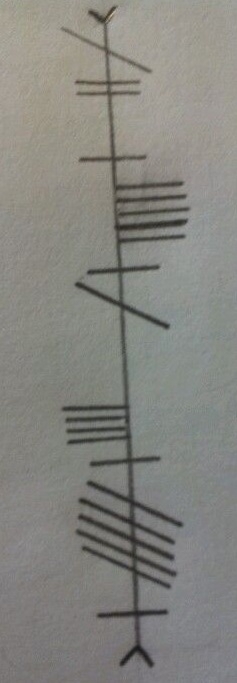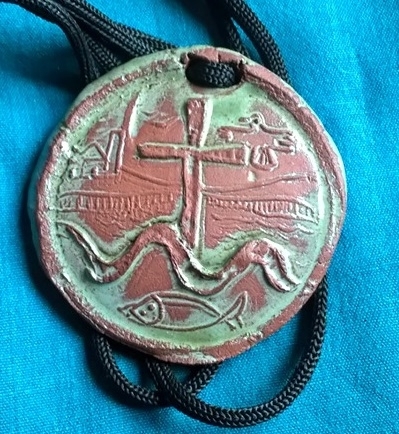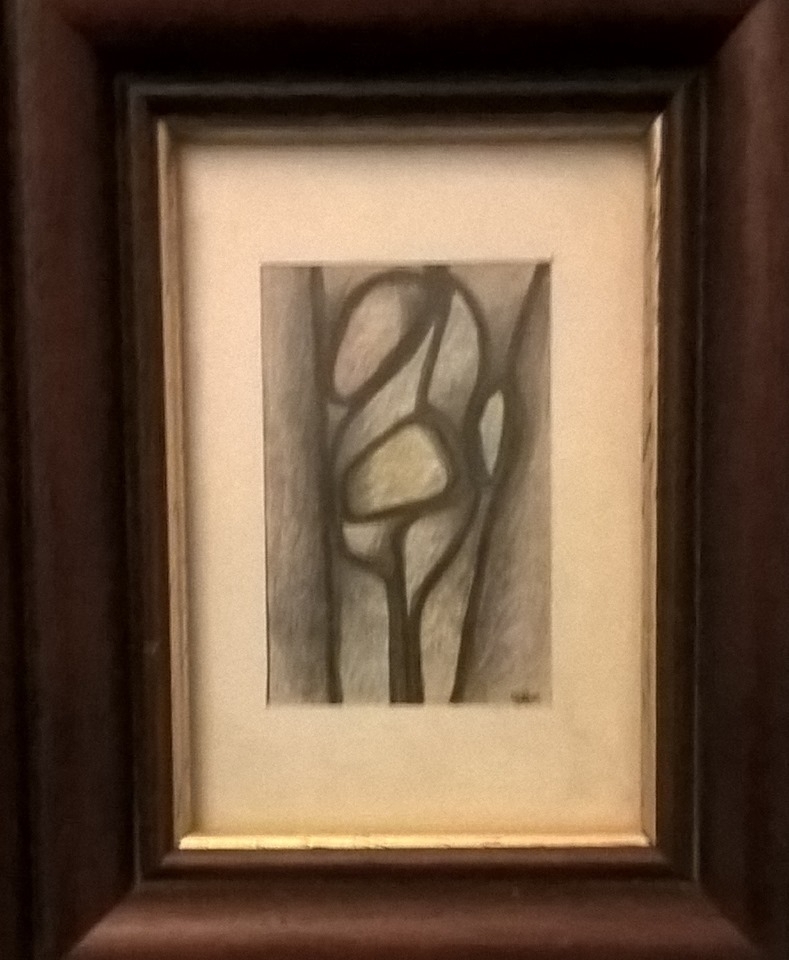So what does this say? Come along on Sunday and you may find out!!
A Skinny Fairtrade Latte in the Food Court of Life - Page 146
-
A Teaser...

-
Worth a Read/Listen
Yesterday, tipped off by a friend who had enjoyed reading it, I bought the audio-book of Revd Richard Coles' book, 'Fathomless Riches'. Hearing him read his own story was great. And because he's a mere nine months older than me, and grew up roughly twenty miles away from me (albeit a very different life from mine) it made for a fairly enjoyable nostalgia tour, as well as providing a very profound insight to his life up to the point of his ordination (a couple of years after my own).
If you can handle some swearing, a lot of reference to sex and drugs, and some brutally honest stuff about faith and doubt, it's worth a read. Indeed, it is a story of grace, redemption and hope, which has much to say to those of us who never did sex, drugs or rock-and-roll, and who are the white, heterosexual goody-goodies that the church likes so much. That said, both he and I have had, 'cue spooky music' moments, and experiences of the Holy Spirit descending as a pigeon.
Now, I'll return to Michele Obama reading her book 'Becoming' which is interesting and informative, but for me is not quite 'doing it' in the same way. I guess I must be odd, most people rave about this book - whilst it's a good listen, it hasn't yet had an 'aha' moment for me.
-
The Wanderer Returns

I've had a lovely break - visiting York, Howarth and Orkney.
The central part of my holiday was the St Magnus Way Pilgrimage in Orkney - some 55 miles across beautiful countryside with coastal and inland views, varied terrain and not too much mud!
The big surprise was the medal we were awarded at the end - shown above. Isn't it beautiful?
I return home rested, refreshed, several pounds heavier (too much amazing home-cooked food) and looking forward to what the autumn will bring.
More bloggage in due course, but as I have a meeting this evening and a (family) funeral tomorrow need to get on!
-
Taking a Break...

Annual leave begins tomorrow and I go away on Friday to spend a long weekend in Yorkshire before a week walking in/on Orkney. There won't be any blogging in that time, but I will return with new tales to tell.
Thought I'd leave a photo of me in my office for no better reason than it's quite a cheerful one - and I've just had my pre-holiday 'pruning' (and you all know how much I love hairdressers!)!!
-
Stewart Bowman Johnson, Artist, RIP

Late on Saturday evening came the news that my Aunt's husband (so my uncle by marriage) had died. Stewart was a graduate of Glasgow School of Art, gifted and talented, yet, like all of us, a fallible and flawed human, who never quite identified his niche or acheived his full potential, yet produced some really interesting work (I have previously shared his religious paintings on this blog). This little pencil drawing belonged to my prandparents, was passed on to my Mum, and now is in my possession. I can see hints of the MacKintosh influence (and Stewart certainly did a lot of stuff in that style) and even though the colours are dark and image quite sombre, I think it carries a sense of life and hope, being a flower (I think!)
Hunting for poems and quotes to pass on to my aunt, as we work on the funeral service I will conduct for him, I happeend upon this one, which I quite like...When Earth's last picture is painted
And the tubes are twisted and dried
When the oldest colors have faded
And the youngest critic has died
We shall rest, and faith, we shall need it
Lie down for an aeon or two
'Till the Master of all good workmen
Shall put us to work anewAnd those that were good shall be happy
They'll sit in a golden chair
They'll splash at a ten league canvas
With brushes of comet's hair
They'll find real saints to draw from
Magdalene, Peter, and Paul
They'll work for an age at a sitting
And never be tired at all.And only the Master shall praise us.
And only the Master shall blame.
And no one will work for the money.
No one will work for the fame.
But each for the joy of the working,
And each, in his separate star,
Will draw the thing as he sees it.
For the God of things as they are!By Rudyard Kipling